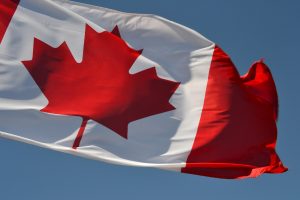[ad_1]
Jamie Golombek: The place, precisely, is your cryptocurrency positioned? It is sophisticated

Evaluations and suggestions are unbiased and merchandise are independently chosen. Postmedia might earn an affiliate fee from purchases made by hyperlinks on this web page.
Article content material
In the event you maintain international property whose whole price exceeds $100,000 at any level in a tax yr, you’re required to file Kind T1135. The shape covers the plain issues, comparable to your Swiss checking account or Cayman offshore funding portfolio, nevertheless it’s additionally required for international shares, comparable to Apple Inc., Microsoft Corp. or Google proprietor Alphabet Inc., which are held in a Canadian, non-registered brokerage account.
Commercial
This commercial has not loaded but, however your article continues beneath.
Article content material
Excluded are international securities held inside pooled merchandise, like Canadian mutual funds and registered retirement financial savings plans or different registered funds. Property for private use, comparable to a trip dwelling in Florida that’s not ordinarily rented out , can also be excluded.
The penalty for submitting late is $25 per day to a most of $2,500, plus arrears curiosity. There have been no less than 20 reported instances by which taxpayers have been assessed a late-filing penalty for the reason that 1998 introduction of Kind T1135. Many of those instances concerned a purely harmless failure-to-file penalty that was assessed by the Canada Income Company despite the fact that all of the earnings from the international property and/or the capital acquire/loss upon its disposition was absolutely declared on the Canadian return.
Commercial
This commercial has not loaded but, however your article continues beneath.
Article content material
However is cryptocurrency thought-about international property, and, in that case, should it’s reported on the T1135?
These questions had been mentioned in a current article by William Musani and Ashvin Singh of Felesky Flynn LLP, a boutique tax legislation agency with workplaces in Alberta and Saskatchewan. They analyzed whether or not cryptocurrency falls beneath the technical definition of “specified international property” within the Revenue Tax Act, which incorporates “intangible property located, deposited, or held outdoors Canada that’s not used or held completely in the middle of carrying on an lively enterprise of the taxpayer.”
Again in 2015, the CRA said that “digital forex can be funds or intangible property and can be specified international property of an individual or partnership to the extent that it’s located, deposited or held outdoors of Canada.”
Commercial
This commercial has not loaded but, however your article continues beneath.
Article content material
However the place, precisely, is your cryptocurrency positioned?
That’s the place it might probably get a bit sophisticated, owing to the very nature — and attraction — of cryptocurrency usually. Many cryptocurrency buyers imagine they’re holding it in a digital pockets on a server, however this isn’t actually the case since cryptocurrency, which is intangible property, is just not truly bodily located, deposited or held wherever.
In observe, an entitlement to your cryptocurrency exists within the type of a digital ledger on the associated blockchain. However as a result of it’s saved on a blockchain, it might probably concurrently exist in a number of geographic areas.
These digital ledgers are thought-about each “distributed” and “decentralized” databases. The database that data the entitlements of a cryptocurrency holder is saved and up to date in lots of areas without delay — that’s, distributed — which makes it troublesome, if not unimaginable, to control its data. The ledgers are additionally decentralized, since no single distributed database is the only real supply of the true possession of the actual cryptocurrency.
Commercial
This commercial has not loaded but, however your article continues beneath.
Article content material
In essence, your digital pockets isn’t storing the precise cryptocurrency itself, however slightly one (or a mixture) of your public or non-public keys. Consider the general public key as your account quantity, and the non-public key as your private identification quantity wanted to entry the account’s info.
The article’s authors argue that in relation to the placement of your cryptocurrency holdings, the geographic location of your non-public key’s “arguably probably the most related think about figuring out the place such cryptocurrency is located, deposited, or held for the needs of the act.”
However the reply to this will depend upon whether or not you’re utilizing a “sizzling” or “chilly” digital pockets. Sizzling wallets are digital wallets linked to the web, which is how practically all cryptocurrency exchanges or on-line suppliers retailer your cryptocurrency. Chilly wallets are usually not linked to the web and are sometimes on a bodily storage drive (suppose Gerald Cotten and the collapse of QuadrigaCX after $190 million of cryptocurrency disappeared).
Commercial
This commercial has not loaded but, however your article continues beneath.
Article content material
It appears clear that the geographic location of a chilly pockets is wherever the bodily drive, pc or USB key with the non-public key on it’s positioned. If the chilly pockets is in Canada, then the related crypto holdings related to it are unlikely to be topic to the T1135 international property reporting necessities, the authors state.
However, when a sizzling pockets is used, “the first server location utilized by the pockets supplier must be strongly determinative of situs. If the server is positioned outdoors Canada, the related holdings usually tend to be topic to international property reporting necessities.”
Commercial
This commercial has not loaded but, however your article continues beneath.
Article content material
However issues can get much more sophisticated in the event you retailer your non-public key in a number of locations without delay. Let’s say you retain a doc containing your non-public key on a pc in Canada. In that case, it could be exempt from the T1135 international reporting necessities. However what in the event you again that doc as much as the cloud. The place are the cloud’s servers geographically positioned? Likelihood is, they aren’t in Canada, and, if that is the case, your cryptocurrency may very well be thought-about by the CRA to be intangible property positioned outdoors Canada and, due to this fact, require international property reporting.
Ultimately, the very best recommendation might be to reveal your cryptocurrency on the T1135 or else threat harsh penalties from the CRA for non-disclosure. As Musani and Singh conclude: “This extremely advanced and distinctive type of intangible property flouts the standard ideas and strategies traditionally used to find out the situs of different varieties of intangible property. Given the CRA’s administrative place and the hefty penalties related to a failure to file type T1135 … the cautious strategy is to report cryptocurrency holdings if the situs of the holdings is ambiguous.”
Jamie Golombek, CPA, CA, CFP, CLU, TEP is the managing director, Tax & Property Planning with CIBC Non-public Wealth in Toronto. [email protected] .
_____________________________________________________________
For extra tales like this one, enroll for the FP Investor publication.
______________________________________________________________
Commercial
This commercial has not loaded but, however your article continues beneath.
[ad_2]










Leave a Reply